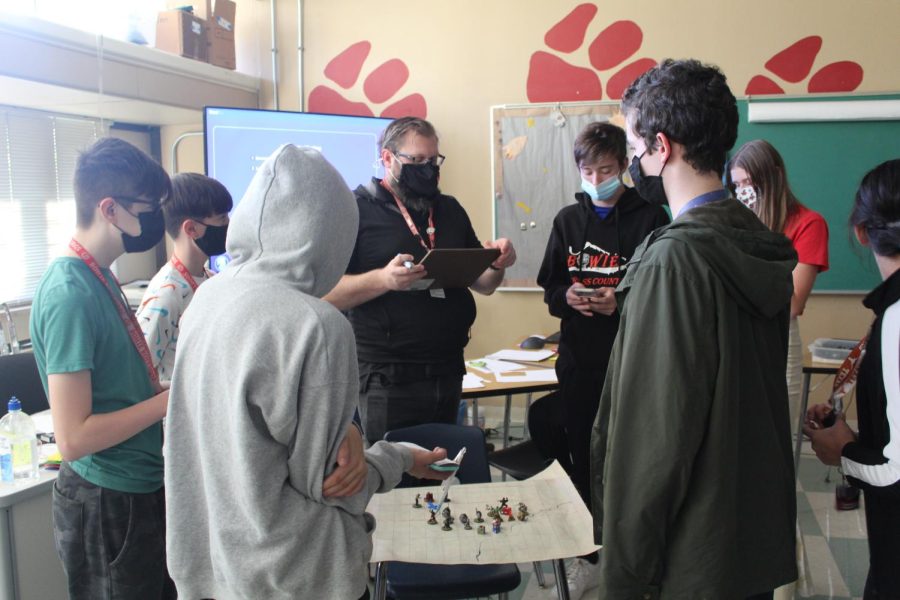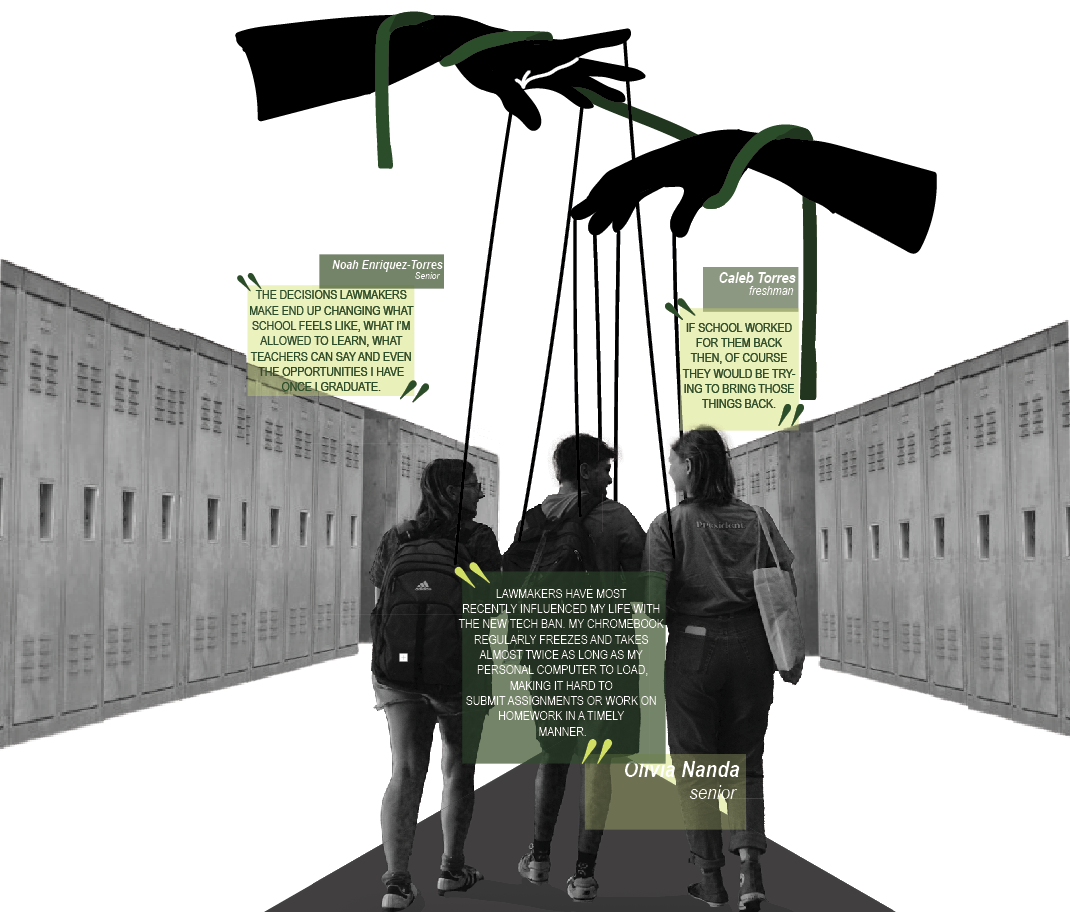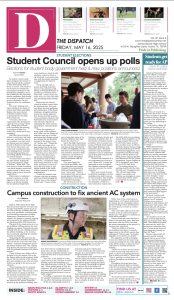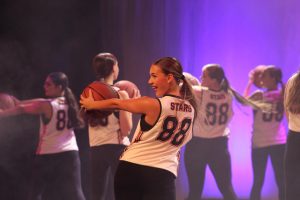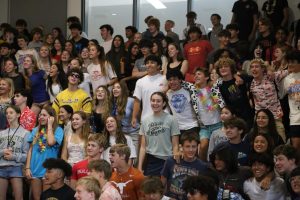Dungeons & Dragons club
Audrey Hagan
In D&D, everything is decided by dice. Players roll the dice and the number will decide the outcome of the game. There are seven dice all used for a different purpose.
March 25, 2022
Dungeons and Dragons club started its first campaign of the year with the dice clanking on the table. Most people would ask what Dungeons and Dragons is. Dungeons and Dragons, also known as D&D, is a tabletop game where player characters (PCs) work together to defeat whatever the Dungeon Master (DM) throws at them.
“I enjoy playing D&D with old friends and new friends,” freshman club member Jack Alderson said. “I like all the cool roleplay things we do.”
Currently, there are five versions of Dungeons and Dragons, the earliest version coming out in 1974 and the newest version coming out in 2014. A new version of the game, published by Wizards of the Coast, is coming out in 2024. In D&D, everything is decided by dice. Players roll the dice and the number will decide the outcome of the game. There are seven dice all used for a different purpose.
“Dice are rolled to decide the outcome of the game,” freshman club member Jared Albini said. “The most important die is the D20 which controls ability checks, attack rolls, and state checks.”
Additionally, there are modifiers, a number determined by a player’s stats. Players add the number to their roll when playing. Freshman club member Quinn Wilkinson explains that modifiers are tricky, as there is a system to determine them.
“To determine your modifiers, you subtract 10 from your overall stat and then divide the number by two,” Wilkinson said. “Really, most people just use a website to calculate modifiers.”
To add to the amount of variation D&D has 12 classes to play from and nine races, each with different features and unique abilities that come with them.
“Classes are just special categories that have special abilities and traits,” Albini said. “Classes affect your playstyle and the way you fight.”
Alignment decides a character’s actions, personality, and moral ideals. Alignment also decides players’ flaws and best traits about them.
“The role of D&D alignments is to represent your character’s morality,” Alderson said. “Your alignment keeps your character acting like themselves, and it helps the player play their character.”
Social interaction is a big part of D&D. Players work together with teammates to solve puzzles, go through battles, and have fun while learning more about each other.
“I am making more friends in D&D club,” freshman club member Miles Mcbride said. “The people and socializing are the best part of D&D.”
The sponsor of this club is life skills teacher Christopher Cox. He is the current DM of the club’s main campaigns, with other members starting their own Campaigns.
“[Being DM] is a great feeling. It’s like you’re a deity in a Greek play, setting the stage but you have no idea how it will turn out,” Cox said. “It’s a bittersweet feeling when you come up with a challenge and then the players figure a way to get past it in a way you didn’t think was possible.”
Being a DM is a tough role. A DM must have good knowledge of the game, and have to tell a story involving the PCs in a creative and fun way, adapting to whatever the characters do.
“Being a DM is hard, but it is really fun because you get to play god,” Wilkinson said. “The best part is seeing your Players overcome challenges in creative and unique ways.”
D&D also has some benefits in real life, like improved creative thinking, better self-esteem, and social skills.
“D&D really forces you to talk with teammates to come up with strategies and learn about each other,” Albini said. “ The best part of D&D is talking with friends and bonding over a session.”


